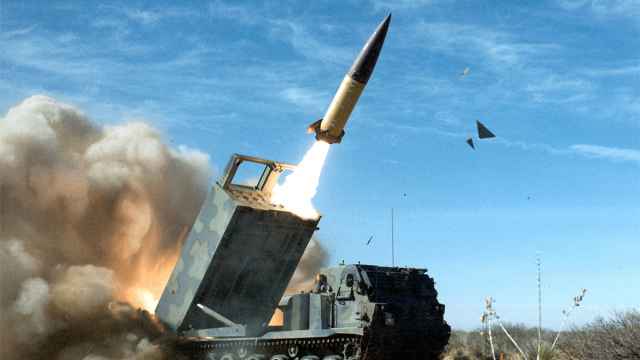Severe cuts in funding have led the Central Elections Commission to abandon its plans for equipping Russia's polling stations with electronic ballots scanners that had helped reduce some types of vote rigging.
Funding for an election modernization program, expected to run through 2015, has been slashed to 3.3 billion rubles ($104 million), from the 12.6 billion rubles that had been slated earlier, Vedomosti reported Thursday.
As a consequence, instead of installing electronic ballot scanners at more than 60 percent of Russia's polling stations that serve 90 percent of the country's voters, the elections commission will place the 11,440 scanners it has already bought at only 7 percent of the polling stations.
The scanners' fate may have already been sealed by a bill that was intended to liberalize Russian election rules, which was signed into law by Russia's prime minister and former president, Dmitry Medvedev, during his final days in the Kremlin last year.
Medvedev's reform reduced the number of members a party must have in order to register with the federal authorities and run in elections to 500 people, from the previously required 40,000. It was expected to greatly increase the number of political parties competing in elections, but electronic scanners are unable to handle lengthy ballots with long lists of candidates.
Andrei Buzin, head of the election monitoring NGO Interregional Association of Voters, said that opposition candidates tended to score higher percentages of the vote in those polling stations that were equipped with electronic ballot scanners, which reduce the possibility of ballot box stuffing.
However, while eliminating one type of vote fraud, this probably led to an increase in other types of irregularities, as absentee balloting sharply increased in the same voting districts, he said.
Russian manufacturers of electronic ballot scanners may seek foreign customers for their equipment now that the Central Elections Commission has stopped placing new orders, the commission's chairman Vladimir Churov said. The devices may be sold to Latin American countries and former Soviet states, spokesman Mikhail Popov added.
Electronic voting machines, which allow voters to select their candidates by pushing a button, without using any ballots, have never been considered a viable alternative to electronic scanners, Churov said.
Russian electoral laws change too fast to allow enough time for developing software and databases for the machines, though the election commission's latest modernization program includes a plan to develop a newer version of the machines, he said.
The elections commission also plans to introduce an electronic reporting system that would allow transmitting ballot count results to the federal database directly from polling stations, instead of going through a regional elections headquarters. The reporting systems would be installed at about 5 percent of Russia's polling stations by 2015.
A Message from The Moscow Times:
Dear readers,
We are facing unprecedented challenges. Russia's Prosecutor General's Office has designated The Moscow Times as an "undesirable" organization, criminalizing our work and putting our staff at risk of prosecution. This follows our earlier unjust labeling as a "foreign agent."
These actions are direct attempts to silence independent journalism in Russia. The authorities claim our work "discredits the decisions of the Russian leadership." We see things differently: we strive to provide accurate, unbiased reporting on Russia.
We, the journalists of The Moscow Times, refuse to be silenced. But to continue our work, we need your help.
Your support, no matter how small, makes a world of difference. If you can, please support us monthly starting from just $2. It's quick to set up, and every contribution makes a significant impact.
By supporting The Moscow Times, you're defending open, independent journalism in the face of repression. Thank you for standing with us.
Remind me later.






